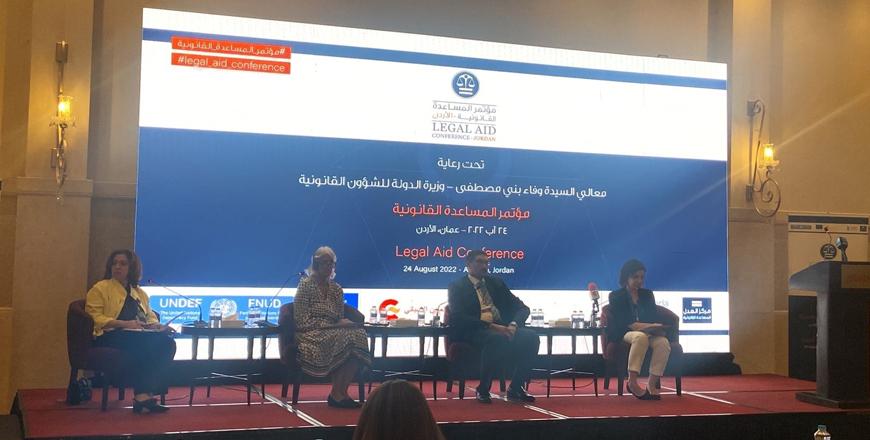You are here
Everyone deserves effective access to justice — NGO
By Maria Weldali - Jan 29,2020 - Last updated at Jan 29,2020
AMMAN — An understanding that often, only those with money and connections have access to strong legal representation led the Justice Centre for Legal Aid (JCLA) to commit to empowering vulnerable people in the Kingdom in need of legal aid.
“Challenges and barriers to justice owing to limited legal assistance, complex legal procedures and inadequate institutional structures, as well as trial delays and heavy costs have rendered people, especially women, hopeless,” Director of the JCLA Hadeel Abdul Aziz told The Jordan Times on Tuesday.
The JCLA is a Jordanian NGO that started in 2008 with a single legal aid clinic in Amman. It has since expanded its services to 16 clinics across the Kingdom’s 12 governorates, according to its website.
The JCLA’s vision was established when three women working in the justice sector, including Abdul Aziz, decided to fight against a reality in which justice is given to those who can afford it and not those who deserve it, according to a statement shared with The Jordan Times.
Since the centre’s establishment in 2008, it has followed criteria and protocols that are revised on an annual basis to help identify those who most need legal assistance but struggle to access it.
“Everyone deserves effective access to justice in the long, expensive road to obtaining it, regardless of nationality, gender, age, status, religion or ethnicity,” Abdul Aziz said in the statement.
The organisation’s work to enhance access to justice is accomplished through legal consultations, in-court representation, accompaniment services and mediation, which it conducts through legal consultants and community facilitators, she noted.
The right to a fair trial is difficult to obtain, as a court hearing to resolve cases at a cost of JD1,000 or more requires a lawyer, she added, noting that there is “a huge gap” in designing model legal services, in addition to reaching minimum legal awareness.
These challenges facing vulnerable groups in legal matters led the centre to focus a part of its work on raising society’s legal literacy through its awareness unit, Abdul Aziz said.
“While the Jordanian constitution states that courts are open to everyone, Jordan does not have a public defender’s office. Those who cannot afford to hire a lawyer while experiencing a legal issue are on their own,” the statement said.
The law states that those sentenced to life imprisonment or the death penalty are to be provided with a lawyer by the government, together with amendments which now cover people who face 10 years of imprisonment and higher.
The Jordanian Department of Statistics estimates that in Jordan, around 47,000 people a year who engage with the justice system cannot afford a lawyer, the statements said.
Statistics also show that 96 per cent of persons in conflict with the law are low-income and cannot afford a lawyer to represent them, which, the statement said, removes any guarantee that the person is receiving a fair trial.
Up until 2018, the JCLA provided legal aid to 28,938 beneficiaries through consultations, 16,057 through representation and 240,691 through awareness-raising programmes, according to the statement.
In 2019 alone, the JCLA assisted 5,533 beneficiaries through legal consultations, provided legal representation to 2,827 beneficiaries and reached 27,926 underprivileged people through its awareness sessions, the statement added.
The majority of the JCLA’s beneficiaries are underprivileged women and refugees, according to the statement.
Related Articles
AMMAN — The Justice Center for Legal Aid (JCLA), a non-profit organisation, recently celebrated providing 175,000 free legal aid actions to
AMMAN — The second edition of the Legal Aid Conference, organised by the Justice Centre for Legal Aid (JCLA) took place in Amman on Wednesda
AMMAN — The absence of a sustainable national legal aid system to represent the financially challenged enhances their vulnerability and thre
















